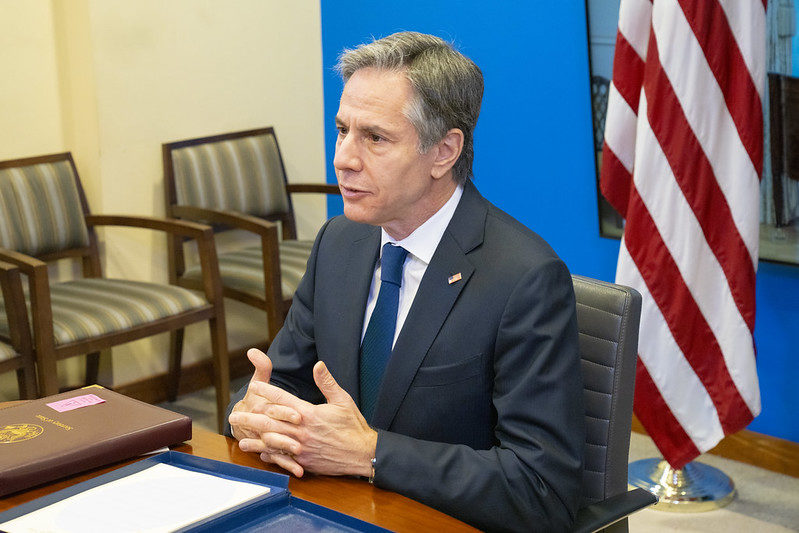U.S. and Iraqi officials agreed to start talks on the eventual removal of American combat troops from Iraq as Iraqi Security Forces grow in capacity, during a joint strategic discussion April 7.
Secretary of State Antony J. Blinken and Iraqi Minister of Foreign Affairs Fuad Hussein led the virtual discussion aimed at reaffirming relationships between the two countries, including on security and counterterrorism, among other areas. The sides agreed to further bilateral security coordination, with a light at the end of the tunnel for combat deployments to the country.
“Based on the increasing capacity of the ISF, the parties confirmed that the mission of U.S. and Coalition forces has now transitioned to one focused on training and advisory tasks, thereby allowing for the redeployment of any remaining combat forces from Iraq, with the timing to be established in upcoming technical talks,” the U.S. and Iraq governments said in a joint statement.
Pentagon spokesman John F. Kirby, in an April 7 briefing, said there is no specific timeline for when combat troops would leave, and the subsequent talks have not yet been scheduled.
The communique from the dialogue is a “reaffirmation of the partnership that we have enjoyed with Iraq and the significance of the mission that still exists against ISIS,” Kirby said.
The U.S. has always been in Iraq at the invitation of the Iraqi government, and there was never an expectation that the American footprint would be permanent or enduring. Eventually, when the time is appropriate, U.S. forces would leave.
“The idea that there would eventually be a redeployment is not new,” Kirby said.
There are 2,500 U.S. forces in Iraq, who are there to advise and assist Iraqi forces. U.S. officials have not said how many of those troops serve in combat roles. The Defense Department Inspector General for Operation Inherent Resolve, in its most recent report, states that U.S. troops remain at the Baghdad Diplomatic Security Complex in Baghdad, al-Asad Air Base, and Erbil Air Base in the northern Kurdish region.
Kirby would not say if the redeployment of American troops out of Iraq would impact the ability to conduct airstrikes in the country.
“The transition of U.S. and other international forces away from combat operations to training, equipping, and assisting the ISF reflects the success of their strategic partnership and ensures support to the ISF’s continued efforts to ensure ISIS can never again threaten Iraq’s stability,” the communique states.
